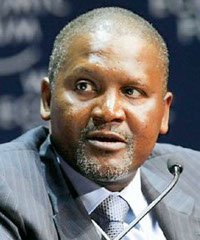Unpacking Nigeria’s oil paradox
Nigeria’s oil paradox is one familiar to many African countries, where an abundance of resources often swamps the ability to use these natural gifts effectively. Nations may have massive supplies of oil, iron or gold, but lack the infrastructure and industrial know-how to process or refine these resources. Out go the raw and rough commodities, loaded onto tankers, trucks and planes and exported to far-away shores; in come the refined and finished products – petrol, automobiles and jewellery – imported at a hefty premium.
In Nigeria, Africa’s largest oil producer, this paradox is especially pronounced. Nigeria has copious amounts of crude oil. According to the latest available data from OPEC, it produced 1.95m barrels a day in 2012, far less than Saudi Arabia, the world’s largest producer, which pumps out 11.7m barrels a day. Angola is Africa’s second-largest producer, with 1.5m barrels a day.
Despite the overflowing crude, Nigeria is also the second-largest importer of refined petroleum products in Africa, behind only South Africa, which has little oil or natural gas of its own. Every day on average 350,700 barrels of gasoline, diesel and related products are shipped in to Nigeria, according to OPEC figures.
This is an expensive paradox. By the time transport and external refinery costs are counted, the Nigerian government spends hundreds of billions of naira in subsidies to keep prices at the pumps reasonable. It was NGN 888bn (US$5.5bn) in 2012. This year the federal government has budgeted NGN 971bn ($6bn). Concerned that this kind of spending is unsustainable, the government has occasionally flirted with decreasing the subsidy or removing it entirely. These plans, however, remain enormously unpopular among Nigerians, who see relatively cheap petrol as the major benefit of living in an oil-producing country. Who can blame them? There is little else to show for all that oil wealth. After the subsidy was suspended in January 2013, mass protests around Nigeria forced the government to reinstate it.
The obvious solution is for Nigeria to refine its own crude oil. Stripped of transport costs and import duties, the petrol price would surely decrease, allowing government to eventually remove the subsidy altogether.
The Nigerian government has tried this solution too. It failed, miserably. With all systems go, the three refineries owned and operated by the state in southern Nigeria’s Port Harcourt and Warri, and Kaduna in the northwest, could be refining 445,000 barrels a day, which is more than enough to cover Nigeria’s daily needs. It would even allow the country to enter the lucrative business of exporting refined petroleum.
This capacity, however, exists only on paper. In practice, a nasty combination of corruption, bureaucracy, inefficiency and chronic disrepair has left the various state-owned refineries operating at just 18% capacity – hence the shortfall that must be made up by imports.
Enter Aliko Dangote
Fortunately for Nigeria, this absurd situation could be about to change, thanks to Africa’s richest man, Nigerian businessman Aliko Dangote. With his sprawling concrete and construction empire, Dangote knows better than most that there is profit to be found in paradox. Moreover, he holds the skills, assets and reputation to make it happen. Dangote announced plans in April 2013 to build a new oil refinery in the Olokola Liquefied Natural Gas Free Trade Zone on the Gulf of Guinea coast near Lagos. The refinery, which Dangote hopes to complete by 2016, will cost an estimated $9bn and produce around 400,000 barrels a day of petroleum products, comfortably meeting Nigeria’s total demand. At the same time, it will “change the economic and industrial landscape of Nigeria”, according to Doyin Okupe, a special assistant to Nigerian President Goodluck Jonathan.
This $9bn price tag is a huge amount of money for anybody, but Dangote can afford it. The latest Forbes Africa rich list values his estate at a tidy $20.8bn, nearly three times larger than that of South African luxury goods mogul Johann Rupert, who is second on the list. Dangote has already pledged $3.5bn of his Dangote Group equity to the project. Of course, he will not pay the entire sum: his company has already announced a $3.3bn financing agreement with a syndicate of Nigerian and international banks, led by the UK’s Standard Chartered and Nigeria’s Guaranty Trust. The remainder will be raised later.


